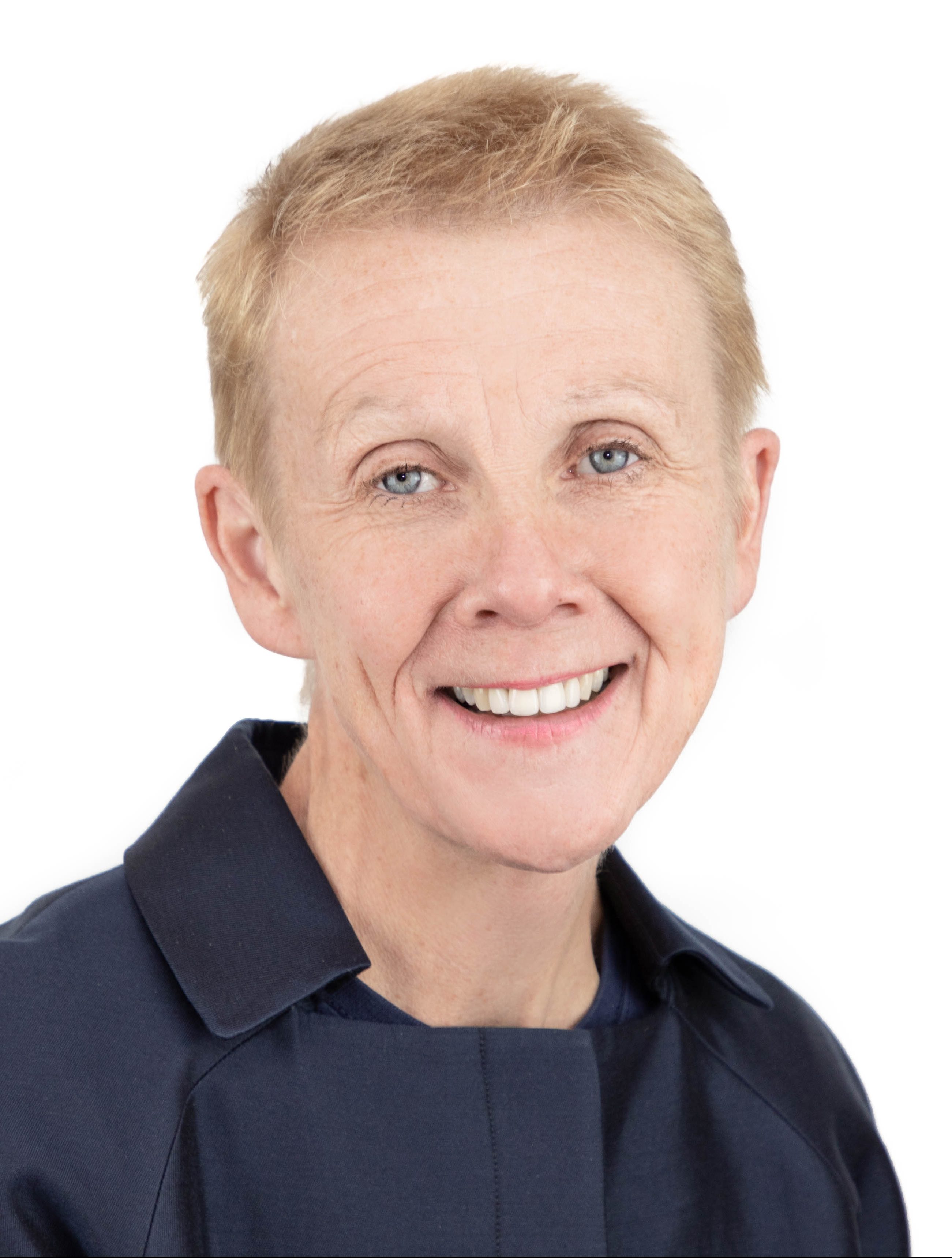People across the country are concerned about coronavirus (COVID-19), but for individuals with respiratory conditions like asthma or COPD, it’s an even more anxious time. This FAQ with Dr Charlotte Rayner, Consultant Physician at Parkside Private Hospital, answers many of the common questions that people with respiratory conditions have and advises people on how to stay safe as we get used to living in the ‘new normal’.
Respiratory and other medical conditions such as diabetes or heart disease make it more likely that an individual will develop symptoms on exposure to coronavirus. These conditions impair the individual’s host defence and therefore if you are exposed to coronavirus you are more likely to become symptomatic and more likely to require medical care.
If you have a scheduled appointment at hospital you will be given advice as to whether it is appropriate for the appointment to be face-to-face or a virtual appointment. If you are uncertain you can contact the healthcare provider, your GP or hospital practitioner and they will be able to give you further advice as to the right course of action. If you have symptoms suggestive of Covid-19 then you need to contact your healthcare provider to inform them of the symptoms and they will then advise you as to whether the appointment should go ahead. If you have been in contact with Covid-19 and are self-isolating then again you need to inform your healthcare provider and they will either reschedule your appointment or arrange a virtual appointment. At any time of the day or night you can contact the NHS 111 service and will be given advice about how your symptoms should best be managed. If you are unwell do not delay seeking advice.
The government is continuing to provide regular updates regarding the staged return to many of the activities that we all took for granted. At the current time there is advice on:

Individuals with medical conditions are also being advised on the type of social distancing that they should adhere to. Some individuals with particular conditions are continuing to shield. Different treatments that individuals are given at different times may change their susceptibility and therefore individuals may be given different advice at different times in preparation for certain procedures patients will be asked to self-isolate prior to admission to hospital. It is likely over the coming months that the advice will change according to the level of Covid-19 within the locality in which we live. There is emerging evidence that lockdown measures appear to be effective against coronavirus.
It is important for all of us to help control the virus to protect yourselves and others. When you leave home you must:
The Government website provides helpful information about what you can and can’t do and this is updated on a regular basis. It is important to note that if you live in an area that is experiencing a local Covid-19 outbreak and where local restrictions have been imposed, different guidance and legislation will apply. There is a local restriction page on the government website.
A mild case of coronavirus might seem like a bad case of the flu. You may start feeling feverish and have chills, your muscles may ache and you may feel sick. For most individuals, the main symptoms of COVID-19 are:
Individuals may have one or all of the above symptoms with coronavirus. It is therefore difficult to distinguish from other respiratory infections. It is therefore important that if the symptoms occur you consider whether or not you may have coronavirus.
We are continuing to learn about the possible long-term health impacts of coronavirus. We know that a number of individuals have had the condition in an asymptomatic form and there appear to be no long-term impacts.
We know that most individuals have had coronavirus and have been symptomatic are making a full recovery.
We also know that there are a number of individuals who have persisting symptoms. Fatigue, exercise intolerance and poor concentration can be problematic. Some patients have developed scarring in the lungs which can give rise to breathlessness. Some patients have developed thromboembolic disease (lung clots) – this requires treatment with anti-coagulant drugs. Some patients have developed impairment of their heart function and, if required, treatment to assist with the heart to recover. Patients who have spent time on an intensive care unit where they may have been ventilated are quite weak due to loss of strength with muscle weakness. This can result in difficulty with eating and swallowing. These individuals require a period of specialised rehabilitation. In addition to fatigue some patients also have developed a low mood and may require counselling and sometimes the use of antidepressants. Over time we will gain more information on the potential long-term health impacts. A new study looking at the long-term effects of the infection has recruited 10,000 healthcare workers who had the virus to identify the long-term medical, psychological and rehabilitation needs.
Those with a mild case of coronavirus recover rapidly within one to two weeks. Individuals with more severe illness may experience a longer period of recovery that takes six weeks or longer. If there has been injury to the lungs, heart and kidney or brain, treatment will be given to control symptoms in a recovery. If you have ongoing symptoms of Covid-19 and you have not been seen by healthcare practitioner, then you should seek advice from your GP to determine if any treatment would aid your recovery.
If you have been in hospital with coronavirus you may have been given a programme to assist with your recovery. It’s important to remember that after any viral infection, fatigue and tiredness are quite common. It is important therefore that you ensure you take adequate rest, keep yourself well hydrated and adhere to a healthy diet. You should build up gradually an exercise programme. Eating well and maintaining a healthy weight is important to keep you fit and strong. A healthy diet will help you fight infection and help recover from an illness. If you are overweight with a body mass index higher than 25 you may consider losing weight. However if you are recovering from Covid seek advice about the optimal timing of starting a weight reducing diet.
If you have an underlying medical condition you may already have been given advice as to when to seek medical attention if you are exposed to Covid-19. You may already have been given treatment to take in the event of your condition deteriorating with an infection. If you have worsening breathlessness, which is not responding to treatment, then you should seek medical attention. You can use the NHS 111 service at any time of the day or night.
As we move into the winter we know it’s important to eat a healthy diet, to maintain your normal exercise program and to receive the annual flu vaccine.
If you have an underlying long-term respiratory condition you may already have already attended a rehabilitation programme to optimise your respiratory muscle strength. You may also have been given a rescue pack of medication to take should you become unwell. You may also have a contact number for a healthcare practitioner can give you advice on the additional escalation of treatment should you become unwell. If you have not received any of this information, you can contact your healthcare provider to request it.
If you have an underlying lung condition you may already have been given advice from a healthcare practitioner on how to remain safe.
It is important that you all adhere to regular hand washing frequently for at least 20 seconds and encourage your children to cough or sneeze into their elbow or into a tissue and to throw the tissue away.
It is important to regularly clean all surfaces where there is regular touching such as tabletops, kitchen work surfaces, doorknobs, bathroom fixtures, toilets, shared phones, shared keyboards. Do not share towels or bedding with the children. Avoid sharing personal household items.
The government has issued guidance for children as they return to school. This includes wearing of masks when travelling on public transport to and from school. There is also guidance for when children need to wear masks in school. You can find the latest guidance on face coverings in education settings here.
You should continue to use your nebuliser as prescribed by your healthcare practitioner. If you are unwell with symptoms of Covid-19 it is important that you use your nebuliser in a separate room from other household members. Making sure that the door is shut and if possible the window open will reduce the likelihood of aerosol generation possible infection.
You should continue to use your oxygen as prescribed by your healthcare practitioner.
Continue to adhere to the guidance from the Government. There is specific advice for patients with different conditions on the government website. You should continue to practice good hygiene including washing your hands frequently for at least 20 seconds. Remind your family that they should continue to adhere to government guidance.
Individual advice can be provided by your healthcare practitioner.
Both the NHS and the Government website provide an excellent source of information which is updated on a regular basis. The NHS coronavirus website provides the latest NHS information and advice about coronavirus.
The government website gives the national guidance that applies to England. People in Scotland and Wales and Northern Ireland should follow the specific rules in those parts of the UK.
About Dr Charlotte Rayner

Dr Rayner is a Consultant Physician at Aspen Healthcare’s Parkside Hospital in south-west London.
Dr Rayner cares for patients with both general medical and respiratory conditions. She runs a specialist rapid access service that includes clinics for patients presenting with both general medical and respiratory symptoms including possible cancer. She also works closely with the oncology team on the ward and at Cancer Centre London, providing expert general medical and respiratory assessment and treatment advice.
You can read more about Dr Rayner here.
Respiratory Medicine
Parkside Private Hospital offers regular outpatient clinics with specialist Consultants to assess and treat a full range of respiratory conditions including asthma, chronic cough, Chronic Obstructive Pulmonary Disease (COPD), emphysema and sleep apnoea. Read more about this branch of medicine, what Parkside’s consultants specialise in, and how to book an appointment here.